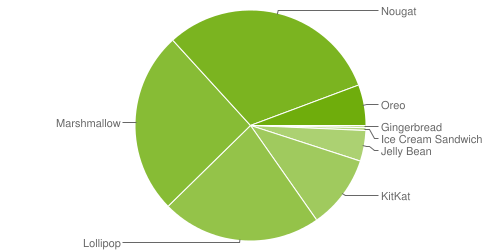I went with the Galaxy Nexus over the S3... smaller screen and less ram yes... but it also doesn't have the bull**** add-ons that most phones have. Not to mention the battery life is a bit longer.
There actually isn't much garbage installed on the S3 that isn't actually useful, and most of it isn't intrusive. The new Touchwiz is much better than previous versions.
I also get a day and a half screen (mostly inside, so screen is dimmed) with using it, and playing games.
I own all 3 of the galaxy series (S+, S2 and S3) and I would recommend each one over the comparable iPhone (3GS, 4, 4S).
Don't really like Apple's way of doing things. They think, they know it all and can dictate how users should be using their devices - but if I purchase a piece of hardware for a couple hundred bucks, *I* want to be the only one who decides how to use it. With Android's large and still fast growing community of open-minded developers, Android fits the needs of advanced users much better than iOS. That's why most IT professionals prefer Android.
Also, Android 4 and the upcoming 4.1 runs circles around any iOS currently available, especially on multicore processors. In fact, I haven't seen a single "lag" on my S3, no matter under what circumstances - it's always super-smooth and extremely responsive.
The S3 is nearly as smooth as Jellybean (Touch responsiveness on Jeallybean is better, but add that to smoothness and speed on S3, and it's a geekgasm).
Updating isn't even an option for most of the Android phones. Whatever OS you got with the phone is the one the phone will have til you get a new phone.
The reverse is probably true for most iPhone users, iTunes will up date you automatically 99.9% of the time. Users don't have to do anything. The same is true on updating the apps with reminders every time any app you have installed is updated. For a phone, Apples more controlled and stable environment is better way to go. You get updated OS, updated apps no matter how old the phone.
Samsung updates their phones, the ones they do not generally do not work well with the new version of Android (Hardware issues). HTC, and many other makers update their phones as well.
You're talking utter garbage, and obviously have never had a current Android phone. Statistics show that there are a lot of outdated phones, but the majority of these were cheap or budget phones released
2 or 3 years ago, and Ice Cream Sandwich and Jelly Bean wouldn't have worked stably on the phone (My old Nexus S 4G had issues with ICS due to low memory).
Android has offered OTA updates, which makes updating quick and easy, and painless. App updates are controlled through the Play Store, and are easily done (You can automate them and do it over wifi only as well). You never have to plugin your phone to your computer if you do not wish too, a huge complaint about the iPhone.
Get the iPhone. Phones are not a place for the Wild West software market of Android. Phones are morphing to bank connected virtual wallets. Your physical location is on the phone. All our contacts and their personal information. It's a time when you really want the controlled phone application environment of Apple. Apple upgrades the software, the apps upgrade and are screened. None of that happens with the Androids.
For a tablet or netbook, Android is OK, but for the phone, the iPhone is the better and more secure option.
In all of the devices I have ever had on Android, I have not once gotten any malware. Know why? I use common sense and check permissions.
If I download a fart app, and it is asking for permissions it does not need, I won't be installing it. The main risk is when you sideload apps, but then again, you will only install apps that you trust unless you're an idiot.
http://www.iphoneincanada.ca/iphone...hut-down-after-malware-uploaded-to-app-store/ it's possible to get malware approved on the App Store. There are still ways to bypass security on an iPhone, and chances are Vincent would end up jailbreaking his iPhone, which makes it as 'insecure' as an Android device.
The iPhone 5 won't be available until mid November, but they will be a significant upgrade over anything on the market today.
Just like the 4S was suppose to be, right?

